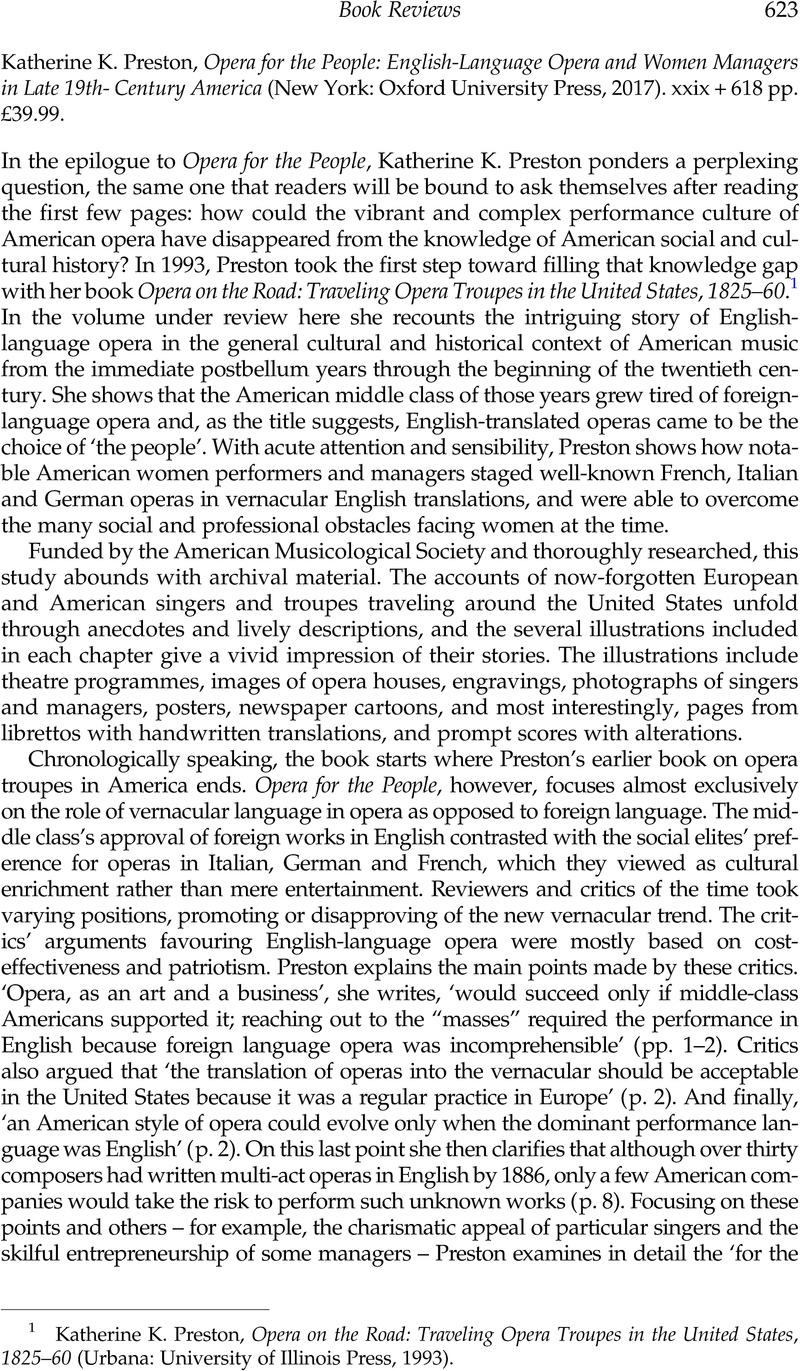No CrossRef data available.
Published online by Cambridge University Press: 14 August 2023

1 Preston, Katherine K., Opera on the Road: Traveling Opera Troupes in the United States, 1825–60 (Urbana: University of Illinois Press, 1993)Google Scholar.
2 Martin, Sadie E., The Life and Professional Career of Emma Abbott (Minneapolis: L. Kimball, 1891)Google Scholar.
3 Kellogg adapted Ernani in English (p. 184n50). For the various performances of I Lombardi see Martin, George Whitney, ‘Verdi Onstage in the United States: I Lombardi Alla Prima Crociata’, The Opera Quarterly, 20/1 (2004): 26–46Google Scholar. Preston also discusses these operas and their receptions in her Opera on the Road.
4 Francesca Vella discusses how in the years 1859–61 Verdi was valued both as a composer and as a political figure. The Italian press of those years reported by Vella mentioned Lombardi alla prima crociata, Ernani, and Nabucco among others as inspiring the crowd to sing the choruses ‘from the maestro of the revolutions’ on the streets. See Vella, Francesca, ‘Verdi and Politics (c.1859–1861)’, Studi Verdiani 14 (2014): 79–120Google Scholar. Referring to the years between 1848 and 1861, Mary Ann Smart writes, ‘There is no doubt that by 1859 both Verdi's name and his music were adopted as symbols of the pro-Unification movement’. See Smart, Mary Ann, Waiting for Verdi: Italian Opera and Political Opinion, 1815–1848 (Oakland: University of California Press, 2018), 153CrossRefGoogle Scholar. For a discussion of Verdi and politics in America at the time, see Dwight, John Sullivan, Dwight's Journal of Music (United States: Oliver Ditson & Company, 1861): 70–71Google Scholar. Several articles on American performances of I Lombardi alla prima crociata, Ernani, and Nabucco are also included in Martin, George Whitney, Verdi in America: Oberto Through Rigoletto (Rochester, New York: University of Rochester Press, 2011)Google Scholar.
5 The book includes a link to a companion website with seven appendices with primary sources for the itineraries of the opera companies mentioned. An additional appendix is a working file open to scholarly collaboration about the critics who contributed reviews and music-related essays to newspapers and periodicals published in the United States during the second half of the century.